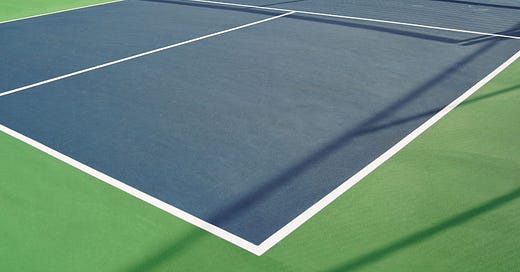Why The Pickleball Times?
Sharing the stories and documenting in a very human way the fascinating growth of this sport and industry.
It’s not every day that something captures as many people as pickleball has. It feels like it’s already swept the United States and is growing in other countries, but I suspect we’re actually just getting started. This Sportico article highlights in the growth over the past couple years—it’s a lot and trending up, up up.
But even with 13+ million people playing the game, we’ve only scratched the surface of those who eligible to play. Especially because the sport is playable by basically anyone over the age of seven—I’ve seen kids even younger than that get excited about playing—and you don’t have to stop playing with age or even with compromised mobility.
It connects people across divides and generations. It’s friendly, relatively easy to get into, and free, depending on your community resources. It’s a great way to meet new people, a fun thing to do in new places, and there’s room for endless individual skill development. There are loads more benefits to getting involved in this incredible sport.
Beyond playing loads of this sport, what fascinates me endlessly are the stories of the sport, the people, the communities supporting it, the challenges, the business opportunities people are carving out. I wanted a place to start capturing these stories—the heart of pickleball, so to speak—as well as documenting in a very human way the fascinating growth of this sport and industry.
There are several pickleball publications out there, sharing all kinds of interesting things about pro tournament happenings, drama between governing bodies, drill suggestions, and paddle recommendations. I subscribe to multiple and appreciate what they share. Even more than these subjects, thought, I’m very interested in intentional living and good roots, and this is the lens through which I am playing and studying this sport.
Here on The Pickleball Times, I write to examine and answer questions like:
What good and complicated things does it say about our society to have a sport exploding so much?
How does pickleball make people better or worse or happier or more self-centered versions of themselves?
How are participants in the industry—communities, companies, even pro players—being intentional about the growth of it?
It feels like the 21st century version of a gold rush, and I’d love to see it not turn into a figurative ghost town. Would love to have you join me in this thoughtful look at a sport most of us are loving.





